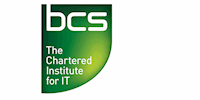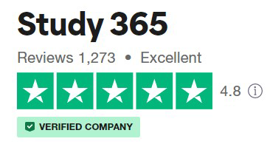BCS Foundation Certificate in Business Analysis
Discounts Available | BCS Certification for Professionals | Globally Recognised | Course with Official Exam
Study365
Summary
Discounts Available!!!
Start Now for ONLY £99!
- Exam(s) / assessment(s) is included in price
Add to basket or enquire
Overview
BCS Foundation Certificate in Business Analysis with Official Exam
If you want to become a business analyst, business consultant or financial consultant the BCS Foundation Certificate in Business Analysis is the perfect choice of course. The BCS Foundation Certificate encompasses a broad range of techniques of the business analysis process model. It provides an excellent overview that focuses on the competencies of a business analyst.
The BCS Foundation Certificate in Business Analysis will introduce learners to the roles and responsibilities of a business analyst, an overall understanding of strategy analysis, and understanding of business systems, business process modelling and business case development.
A Business Analyst bridges the gap between the business and the customer. The Foundation Certificate in Business Analysis course explores the tools and techniques to maximise the value delivered to the customer. Acquire the fundamental knowledge of business analysis as the first step to prepare and pass the BCS Foundation Exam.
Certification
BCS Foundation Certificate in Business Analysis
Course media
Description
What will I learn?
- Have a clear understanding of the role of a business analyst.
- Learn about business systems and business process modelling.
- Have an overall understanding of strategy analysis.
- Learn the approach to improve business systems.
- Understand the importance of stakeholder management and how to use stakeholder analysis technique.
- Learn to make recommendations for business improvements
Course Curriculum: Type of Course Materials - Video
[Module 01] What Is Business Analysis? - Business Analysis
- Definition of Business Analyst
- Origins of Business Analysis
- Development of Business Analysis
- The Scope of Business Analysis work
- Taking a holistic approach
- Roles and Responsibilities of a BA
[Module 02] The Competencies of a Business Analyst - Business Analysis
- The Competencies of the BA
- Development of BA cometencies
[Module 03] Strategy Analysis - Business Analysis
- Context of Strategy
- Definition of Strategy
- Levels of Strategy
- Strategy Development
- PESTLE
- Posters 5 Forces
- Internal Environment Analysis
- MOST
- Resource Audit
- Boston Box
- SWOT Analysis
- Executing Strategy
- McKinsey’s 7 S Model
- Balanced Business Scoreboard
- CSF’s and KPI’s
[Module 04] The Business Analysis Process Model - Business Analysis
- An approach to Problem Solving – Isaksen & Treffinger
- Stages of the Business Analysis Process Model
- Investigate Situations
- Consider Perspectives
- Analyse Needs
- Evaluate Options
- Define Requirements
- Deliver Changes
[Module 05] Investigation Techniques - Business Analysis
- Interviews
- Preparing for Interviews
- Conducting Interviews
- Following up on the interview
- Observations
- Types of Observations
- Workshops
- Preparing for the workshop
- Facilitating the workshop
- Workshop Techniques
- Following up on the workshop
- Scenarios
- Process for Developing Scenarios
- Documenting Scenarios
- Prototyping
- Quantitative Approach
- Surveys or Questionnaires
- Special purpose Records
- Activity Sampling
- Document Analysis
- Documenting the Current Situation
- Rich Pictures
- Mind Maps
[Module 06] Stakeholder Analysis and Management - Business Analysis
- Definition of Stakeholder
- Stakeholder Categories
- Analysing Stakeholders
- Power Interest Grid
- Stakeholder management Plan and Assessment
- Understanding Stakeholder Perspectives
- Soft Systems Methodology
- Analysing the Perspectives – CATWOE
- CATWOE Examples
- Business Activity Model
- Types of Avtivites
- Creating a BAM
- BAM Example
- Developing a Consensus Model
[Module 07] Modelling Business Processes - Business Analysis
- Organisation Context
- Functional View of an Organisation
- Process view of an Organisation
- The Organisational view of business process
- Porter’s Value chain
- Value propositions
- Process Models
- Business Models
- Business Events
- Developing Process Models
- Analysing the as – Is Process model
- Improving Business Processes (to + be Processes)
- Business Rules
[Module 08] Defining the Solution - Business Analysis
- Gap Analysis
- Framework for Gap Analysis (POPIT)
- Formulating Options
- Business Architecture
- Definition of Business Architecture
- Business Architecture Techniques
- Definition of a Capability Model
- Definition of a Value Stream
- Example of a Value Stream
[Module 09] Making a Business and Financial Case - Business Analysis
- Business case in a project lifecycle
- Identifying Options
- Assessing project Feasibility
- Force field Analysis
- Structure of a business case
- Categories of costs and Benefits
- Impact Assessment
- Risk Assessment
- Investment Appraisal (Payback)
- Discounted Cashflow (Net Present Value)
- Internal rate of return
- RAID and CARDI log
[Module 10] Establishing the Requirements - Business Analysis
- Framework for Requirements Engineering
- Actors in Requirement Engineering
- Requirements Elicitation
- Levels of Tacit and Explicit Knowledge
- Requirements Elicitation Techniques
- Techniques and Knowledge Type
- Requirements Analysis
- Requirements Filters
- SMART Requirements
- Requirements Validation
[Module 11] Documenting and Managing Requirements - Business Analysis
- Requirements Document – Structure
- Requirements Document – Content
- Requirements Catalogue
- Types of Requirements
- Hierarchy of Requirements
- Documenting a Requirement
- Managing Requirements
- Requirements Traceability
[Module 12] Modeling Requirements - Business Analysis
- Modelling System Functions – Use Case Diagrams
- Modelling System Data – Entity Relationship Diagram
- Class Diagram
- Class Diagram Associations
[Module 13] Delivering the Requirements - Business Analysis
- Delivering the Solution
- Context
- Lifecycles
- V – Model
- Incremental
- Iterative
- General Agile Model
[Module 14] Delivering the Business Solution - Business Analysis
- Ba Role in the Business Change Lifecycle
- BA Role in Business Change Life Cycle – Design Stage
- Design Stage – Information Technology
- Implementation Stage
- Implementation Stage – SARAH Model
- Realisation Stage – Benefits Plan
- Realisation Stage – Benefits Realisation Report
Note: Additional Materials & Mock Exam Included
Access Duration
The BCS Foundation Certificate in Business Analysis with Official Exam course will be directly delivered to you, and you have 12 months access to the online learning platform from the date you joined thecourse. The BCS Foundation Certificate in Business Analysis with Official Exam course is self-paced and you can complete it in stages, revisiting the lectures at any time.
Method of Assessment
At the end of the Foundation Certificate in Business Analysis course you will be evaluated through an online exam. The exam is designed to measure individuals’ knowledge and proficiency in business analysis following their completion of the course.
- Duration: 1 hour
- Computer based exam
- Multiple choice
- Closed book
- Pass mark: 65%
Certification
Those who successfully complete the BCS Foundation Certificate in Business Analysis with Official Exam course will be awarded the Foundation Certificate in Business Analysis by BCS, The Chartered Institute for IT. It will make you valuable to employers, and your motivation at gaining new skills will be recognised.
Awarding Body
BCS, The Chartered Institute for IT, is committed to making IT good for society. We use the power of our network to bring about positive, tangible change. We champion the global IT profession and the interests of individuals, engaged in that profession, for the benefit of all.
Whether it’s using a computer for the first time or taking the lead in an organisation’s agile transformation. With flexible learning and rigorous assessment, our qualifications show employers and customers that you’ve achieved the globally-recognised benchmark in relevant skills and competence.
Who is this course for?
- Business Analysts
- Business Consultants
- Business Change Analysts
- Financial Consultants
Requirements
Learners should be age 16 or over, and must have a basic understanding of Maths, English, and ICT.
Career path
- Business Analyst – £36,407 per annum
- Business Manager – £34,285 per annum
- Business Consultant – £38,306 per annum
- Financial Consultant – £36,187 per annum
- Change Analyst – £27,705 per annum
Questions and answers
Reviews
Legal information
This course is advertised on reed.co.uk by the Course Provider, whose terms and conditions apply. Purchases are made directly from the Course Provider, and as such, content and materials are supplied by the Course Provider directly. Reed is acting as agent and not reseller in relation to this course. Reed's only responsibility is to facilitate your payment for the course. It is your responsibility to review and agree to the Course Provider's terms and conditions and satisfy yourself as to the suitability of the course you intend to purchase. Reed will not have any responsibility for the content of the course and/or associated materials.




